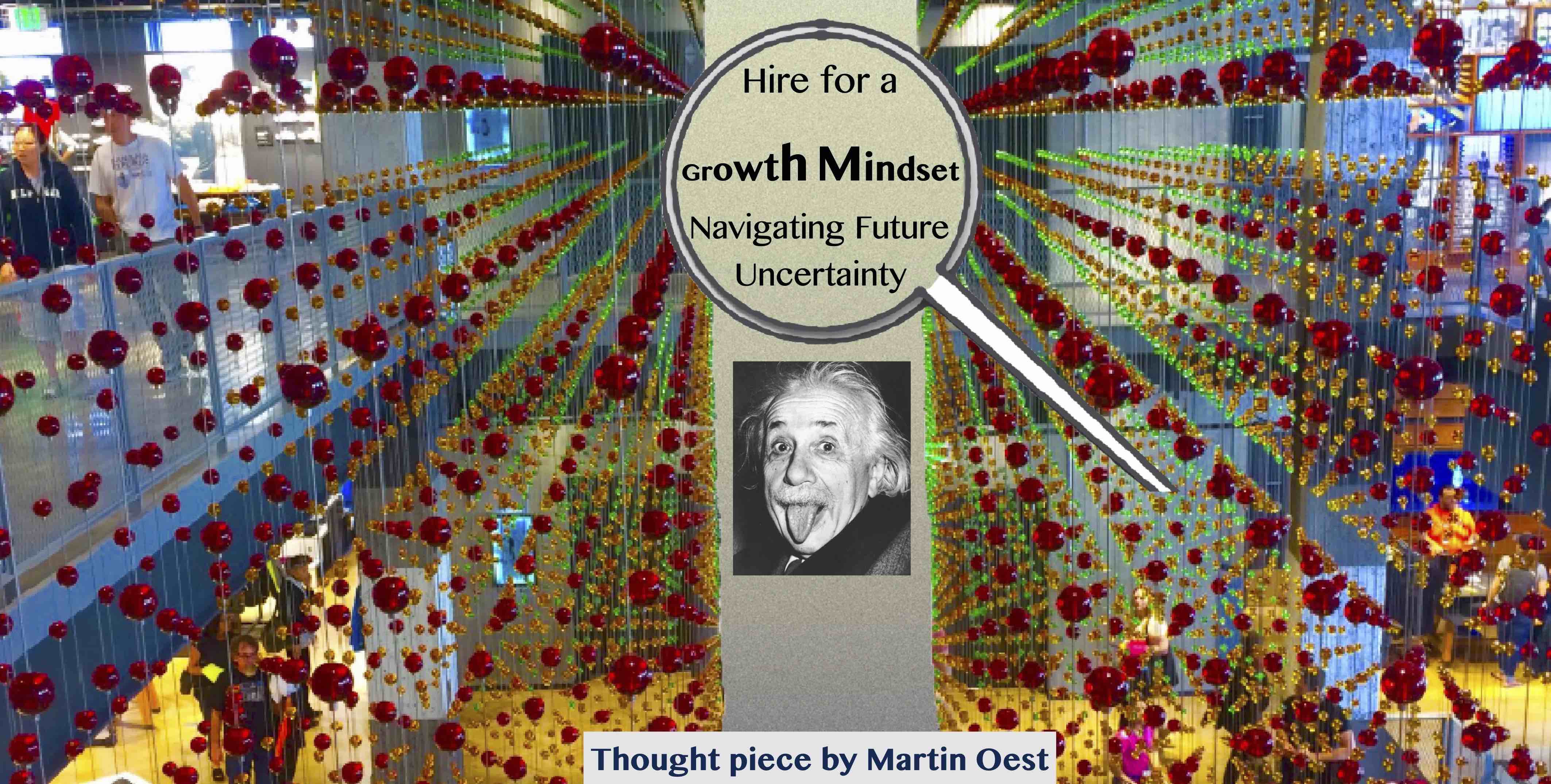
Attributed to the Greek philosopher Heraclitus, the phrase “change is the only constant in life” feels as true now as it was way back in 500 B.C. and nowhere is this more keenly felt than in the workplace. The skills and capabilities organisations require to compete successfully in the future are uncertain, in fact research from the World Economic Forum predicts that five years from now, over one-third of skills (35%) that are considered important in today’s workforce will have changed. And, emotional intelligence and cognitive flexibility are two new skills that will reach the top 10.
Furthermore, research by Korn Ferry of 800 leaders of multi-million dollar global businesses highlights that nearly half (44%) think that robotics, automation, and AI will make people “largely irrelevant” in the future of work.
As a consultant working across industries and businesses this certainly chimes with my experience, so what do we do? How do organisations best equip themselves and their workforce with the qualities that will enable them to manage the business, not just for today and tomorrow, but into the medium term and beyond? How do you plan when an ever increasing pace and scale of change demands an ever more rapid reconfiguration of skill sets and capabilities?
Moneyball: ‘They didn’t buy talent they bought mindset’ - Carol Dweck
Well, one way is to build a business with flexibility at its core, one capable of growing and evolving as necessary. As regards the composition of the workforce this could mean re-evaluating the type of attributes a business currently targets in its recruitment for new employees, focusing not just on current skills and qualifications but also trying to identify how well an individual may be able to embrace change. As demand alters and makes existing skills obsolete an adaptable business, with employees who can build and grow their skills and acquire new capabilities, will help place the organisation in a relatively stronger competitive position.
I believe hiring people with a growth (as opposed to a fixed) mindset, who embrace challenge and change as a learning opportunity, is key because people who enjoy a growth mindset not only embrace challenges but also persist in the face of setbacks. This perseverance, I think, is similar to what Angela Duckworth called ‘grit’ in her research on the predictors of achievement. A growth mindset also perceives effort as critical to the development of new skills and all these qualities are effective when the only thing that’s certain is change. And according to research in this area by Professor Carol Dweck and others, it will pay dividends too.
"I have no special talents. I am only passionately curious." - Albert Einstein
Organisations therefore need then to create and include ways to assess people for a growth mindset when recruiting new talent and look for techniques to foster this way of thinking throughout the existing business.
As regards the organisation it means using some of the techniques in strategic workforce planning (SWP) to help identify and flag as early as possible the future capabilities required and employing different strategies to acquire and bring them into an organization – perhaps a small core of permanent strategists, a partnership around transactional delivery (HR, IT, Finance) and an increased use of contingent workers could all be effective ways forward. These approaches would all make workforce capabilities (and capacity) explicit and much easier to challenge and highlight where there are gaps – earlier.
The benefits of structuring an organisation and people for change in this way are numerous. One area is innovation, in my mind a clear beneficiary in the future of successful ‘growth mindset” organisations. Employees in a growth mindset company are, according to Dweck, 49% more likely to say the company fosters innovation. Obviously the company will also be more adaptable overall and less likely to get stuck with a great proportion of capabilities that have passed their ‘best before’ date.
There’s no doubt a large volume of roles will in future become superfluous and disappear. Futurist Thomas Frey predicts the loss of 2 billion jobs by 2030 and in the ft.com we can read that ‘…35 per cent of jobs overall in the UK are at high risk . Just as typing pools and steel workers for example, were in the past, and taxi drivers will be in the future.
“It is not the strongest of the species that survive, not the most intelligent, but the one most responsive to change” - Charles Darwin
So why do organisations need to consider this right now? Well, it feels this is more important than ever given some of the large fluctuations currently happening around the world. It is most likely that there are specific transformational changes on the way with areas like artificial/augmented intelligence becoming more and more mainstream. Brexit and the result of the US election also indicate that globalisation may be challenged and we will see more of a focus on protectionism moving forward. For example, in the UK there is a shortage of workers in many key sectors, like nurses, and the recent past has seen many employees being brought in from both southern and eastern Europe (as well as further afield as in the case of the Philippines) to try and bridge the shortfall. The risk of more and more barriers to trade and movement of people means it’s even more critical that employers engage with these issues, especially as it takes time – possibly several years – to set-up and develop an organization and its staff to be truly flexible, capable of navigating the uncertainty of the future.
Thanks for your attention.
Thought Pieces